Sebastián Yatra’s Secret to Happiness
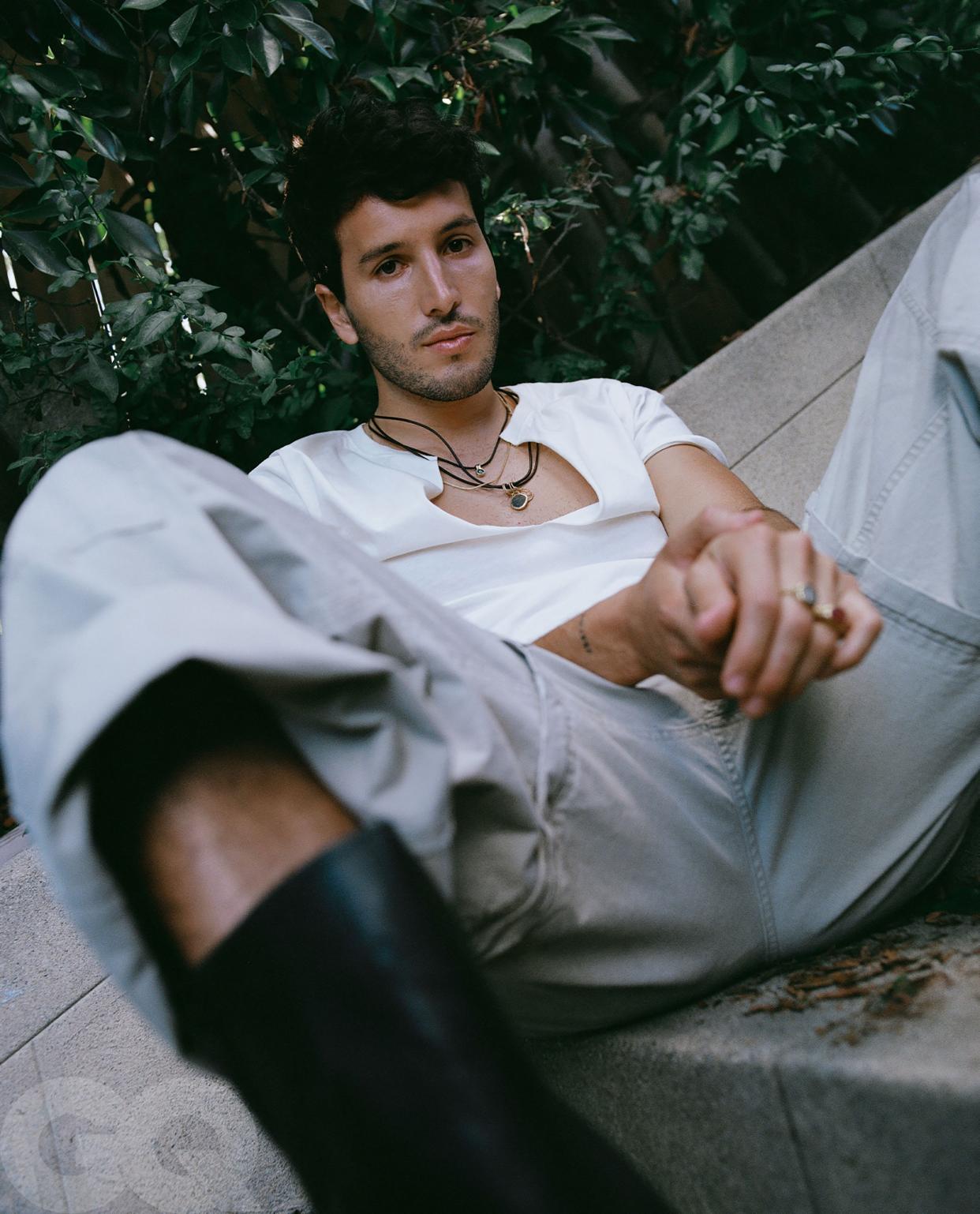
- Oops!Something went wrong.Please try again later.
- Oops!Something went wrong.Please try again later.
- Oops!Something went wrong.Please try again later.
This past August, the Colombian singer Sebastián Yatra found himself outside of his usual element: on court at the US Open, chest-bumping his friend Carlos Alcaraz, then the No. 1-ranked tennis player in the world. The two had met at a previous Open, and now here they were, back in Queens for an exhibition doubles match, taking on American tennis star Frances Tiafoe and Miami Heat showman Jimmy Butler.
“I thought it was a cool challenge: Let me see if I can do this whole match at the US Open and not have it be totally pathetic,” Yatra says over a cup of coffee, out on the patio of a house up in the Hollywood Hills that his team prefers when they’re in LA.
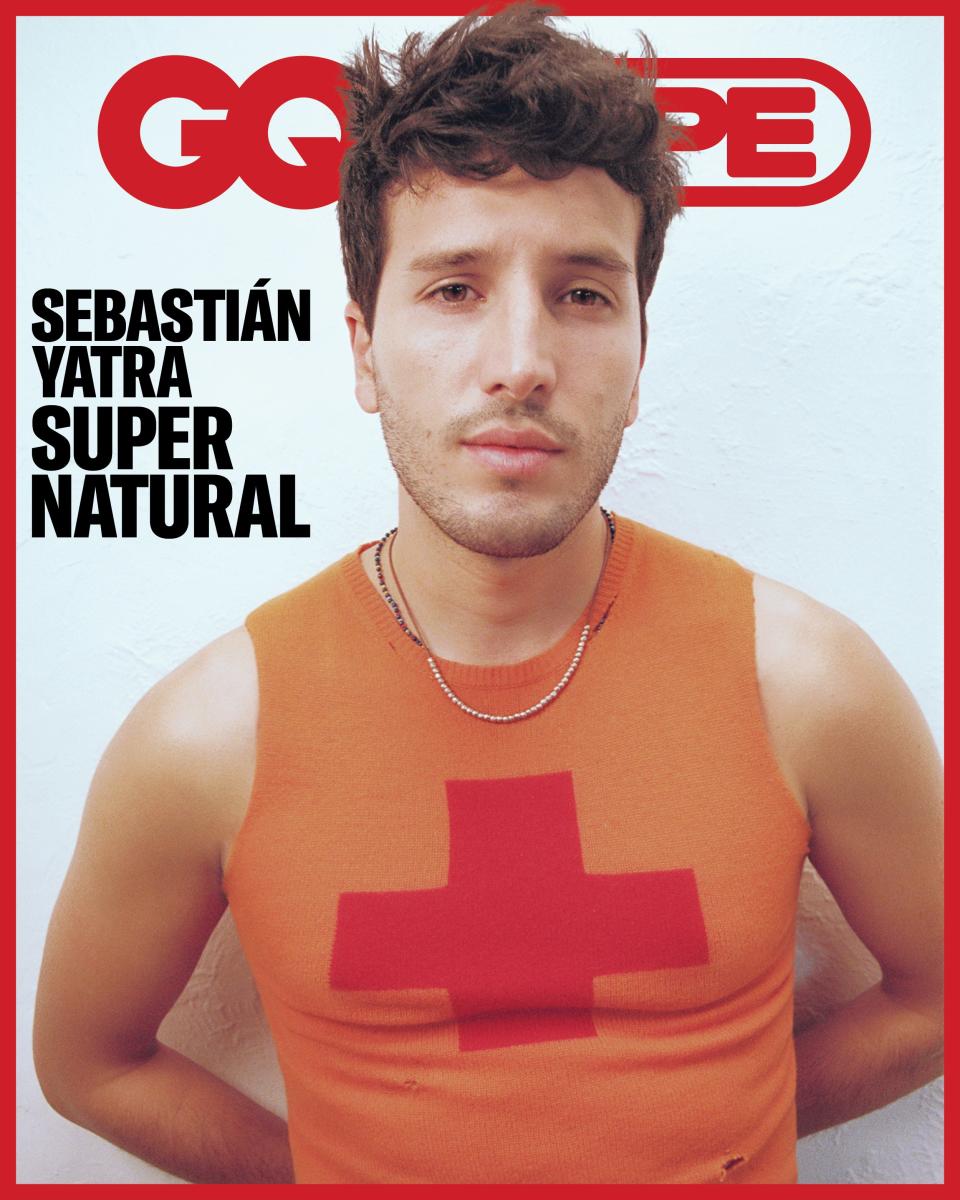
It wasn’t pathetic. Yatra and Alcaraz won, and Yatra has continued to serve, on courts all over the world. “I’m actually pissed off at this city right now. We’ve been trying to play tennis here but it’s hard. You go to the tennis court and people are playing pickleball. Like, I’m sorry to all people that play pickleball,” he says, earnestly and with deliberate civility. “But I can’t respect that.”
He appreciates the satisfaction in tennis. How it’s not just about how physically capable you are, but how smart; a mental game where high-performance players, like solo artists, travel constantly and expose their lives to scrutiny. They depend on the teams around them, but ultimately earn glory or take criticism on their own.
“Carlos is super natural,” Yatra says, with heartfelt admiration. “He knows what he wants and he gets it, but without unhealthy ambition.” When you have something you love, there’s joy in just wanting to be the best you can, no matter the external validation.
Yatra is in Los Angeles to work on his not-yet-titled fourth album. His hair, once styled skyward, is now cropped tight on the sides. Tonight, he plans on taking his team to Halloween Horror Nights at Universal Studios — “It’s so scary,” he promises — but mostly he’s spending his time here running in the morning, clocking in at the studio, and going to bed before 10. As prep for his upcoming cover shoot wraps, he quietly tucks off to a sun-lit corner to read a book.
At 29, he’s a seasoned vet of the music business, and a sort-of anomaly. Like Karol G, he’s paired reggaeton drum patterns with pop melodies. Like Josh Groban, he’s trained his singing voice to sound like an extension of his speaking voice. Like Enrique Iglesias, he’s as comfortable with uptempo party songs as downtempo ballads. And like Shawn Mendes, he’s got the air of a Disney prince or contemplative Ken, both libidinous and puppylike.
Yatra has nearly 30 million followers on Instagram, and his music has reached YouTube’s top songs charts in more than 25 countries. But among English speakers in the US, he’s arguably most famous with parents, who know his name from the Encanto soundtrack their kids might love. Yatra’s Encanto centerpiece, “Dos Oruguitas,” spent 15 weeks on YouTube’s US Top Songs charts and was nominated for Best Original Song at the Oscars, where Yatra wore a pink tuxedo on the red carpet (“It definitely didn't go unnoticed”) and cried after he performed on stage. “It was like doing a free solo,” he says. I’m representing 600 million people that speak Spanish in the world, but I’m doing it without a harness.” He’d never never lost it after a performance before, but there was so much pressure and happiness to release.
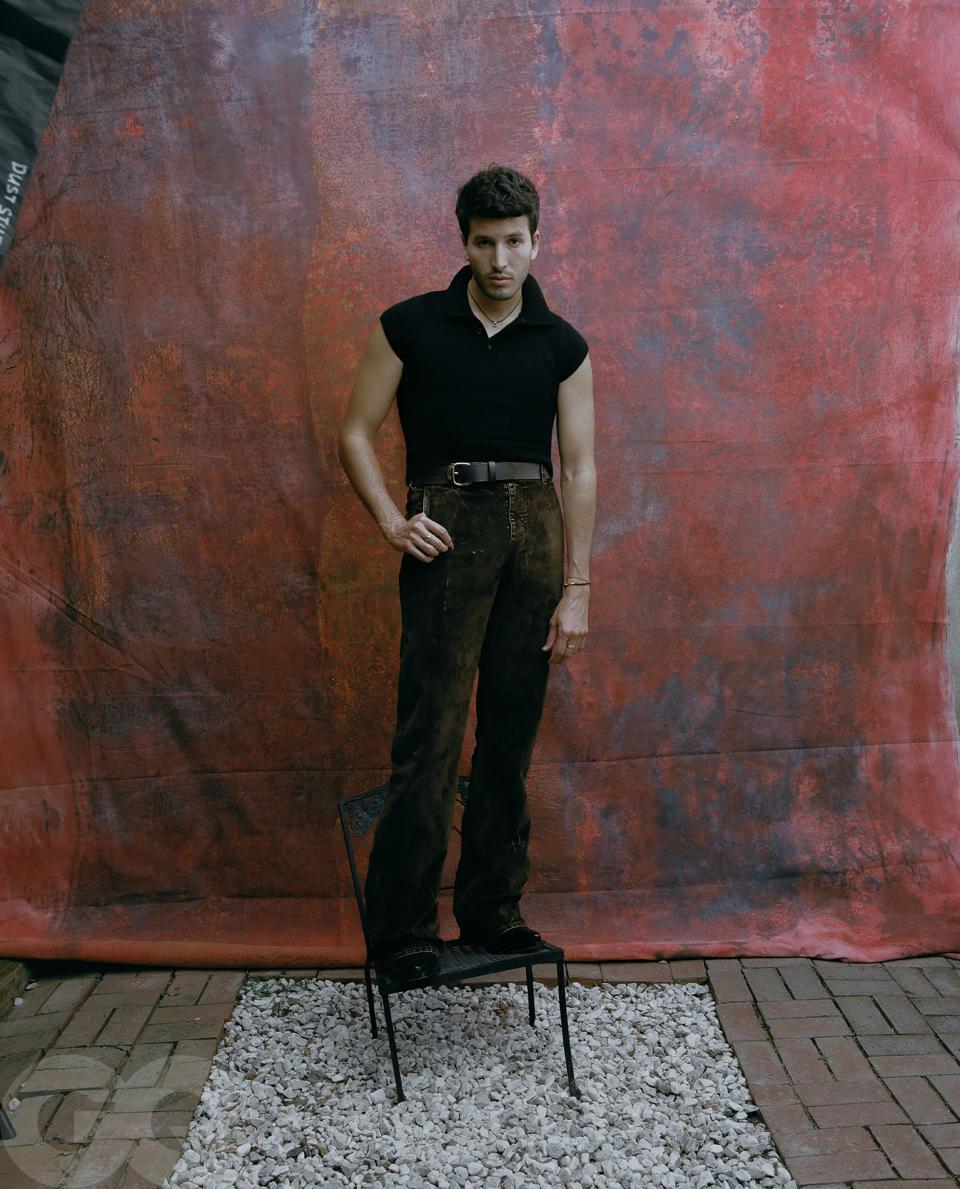
"Sebastián has a remarkable ability to unlock a lyric and make it both personal and universal,” says Lin-Manuel Miranda, who wrote end-to-end in Spanish for the first time for “Dos Oruguitas,” and created all of Encanto’s hugely successful original music. "It was a joy to write for his voice.”
“Yatra” is a stage name, selected by Yatra and his mother at the outset of his career for its easy feel and international potential. A Sanskrit word for “journey,” it’s used to describe pilgrimages in Buddhism and Hinduism. Whether that’s deep or cringe to you, it’s genuinely fitting for Yatra, who’s spent the last decade literally wandering the world, and proverbially searching too. “Why did I start singing? he asks, making direct but gentle eye contact. “Probably because I was looking for people’s approval. And attention.”
Yatra was born in Medellín in 1994. Colombian police had killed cartel leader Pablo Escobar months earlier, and Yatra remembers the city as “insecure” during his childhood, as rebel groups faced off with the Colombian state. His family moved to Cartagena then planned another move to Bogotá, but changed course after a student from the school Yatra’s brother was set to attend was kidnapped, joining a wave of migration of Colombia’s middle and upper-middle class to south Florida. “We had a house in Miami, a vacation home. And my parents said hey, kids, you wanna move to Miami?”
They settled in suburban Pembroke Pines. Yatra got into singing in middle school, when his cousin was auditioning for a production of High School Musical, and Yatra decided he’d try out too. He’d sung before with his father, a prominent transport magnate who played guitar as a hobby. Yatra had the same floppy hair as Zac Efron’s character, Troy Bolton, and the teacher loved his audition: “It’s you! Tu eres Troy,” she said. (The school recently dedicated a new arts conservatory in Yatra’s name.)
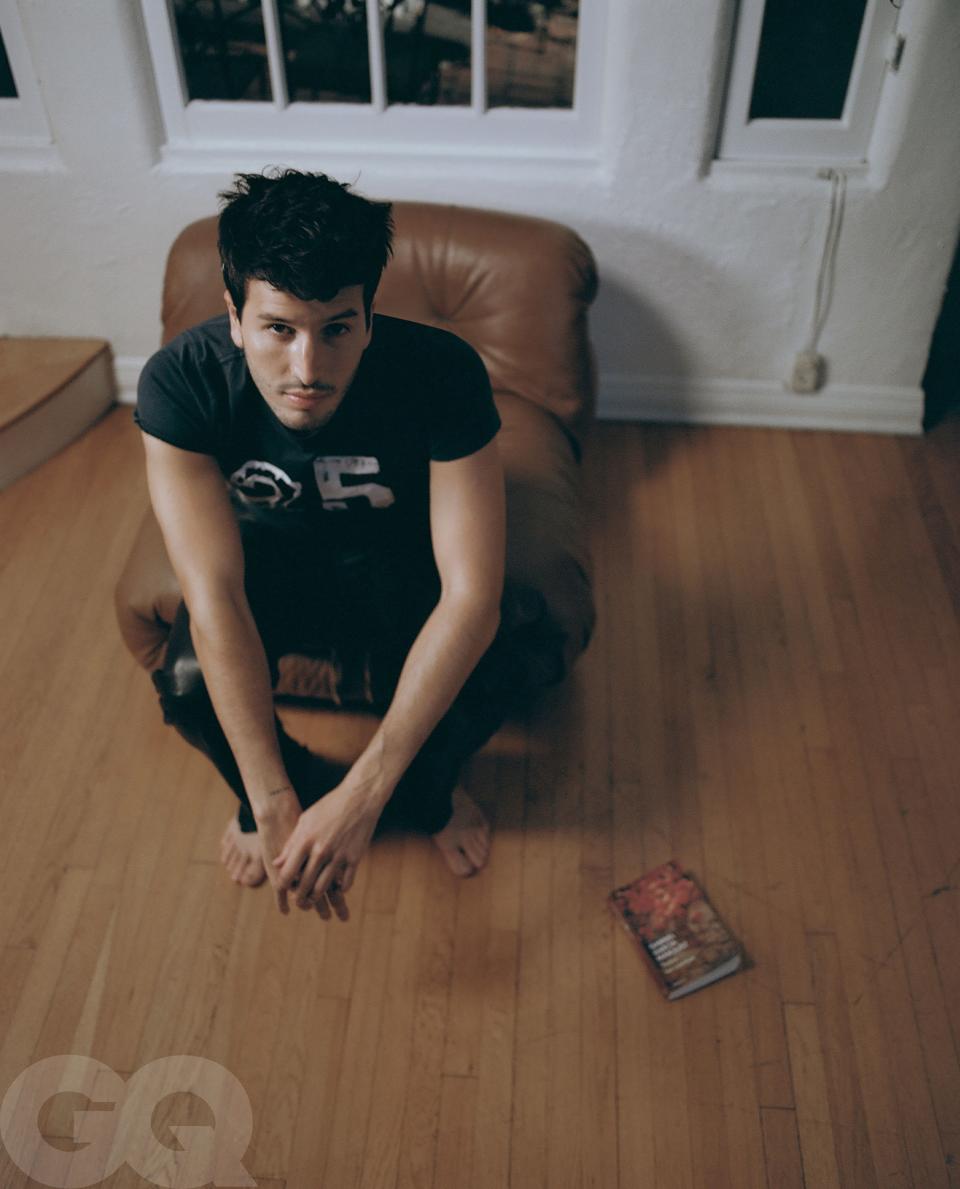
The role suited him. He became that kid who wore a scarf at soccer practice to protect his vocal cords. With one vocal coach from Argentina, and another from Cuba, he developed the muscle to sing in falsetto. “I’d be at a party or out with my friends, and no matter what, I’d go out to my car for 30 minutes, and repeat the vocal exercises that I had to do every day. Kids would make fun of me. Like, You're a guy, and you wanna be a singer? But I knew what I wanted.”
After graduating high school and a stint studying business, Yatra returned to Colombia. He arrived not as a total outsider, but not yet an insider either. “Being Colombian and also being American, it’s like you have two different personalities,” he says. “I had two challenges when I went to do music in Colombia. Not only was I the guy that was not completely Latin or still didn’t feel that way because I’d never lived there, but I also came from a family that was very well off. Whoever knew that, knew, and getting respect there is tough. But I just started singing. And little by little, I connected with people and started to know the culture and feel a part of it. I like music and I like writing songs — that’s why I was able to stick to it, and why it’s worked.”
He first hit No. 1 in Colombia in 2016 with “Traicionera,” a slick digital blend of midtempo reggaeton and pop produced by Andrés Torres and Mauricio Rengifo, a duo who’ve worked alongside Yatra throughout his career (and famously expanded notions of pop music with Luis Fonsi’s record-breaking megahit, “Despacito”). In 2017, Yatra says he performed 221 shows — if you attended a prom in Latin America at the time, you might have seen him.
He sustained that pace in the following years, putting out solo albums and releasing collaborations with Colombian folk hero Carlos Vives and Mexican boy band Reik. “Pop has always been an important part of the Latin music scene,” says Mauricio Ojeda, Head of Music Label Partnerships, US Latin and SpLatam for YouTube. In the 2010s, as the industry scrambled to shift its priorities toward reggaeton, executives in Madrid, Mexico City, and Miami began turning more seriously to urbano hubs like Medellín as a source for talent. “This opened opportunities to Colombian artists,” Ojeda says. “There was a need for a pop artist who could speak the same language as the urban artists, and talk to young audiences. And there was a big gap between pop artists like Juan Gabriel and new fans. Sebastián found his spot as a pop artist. I praise the fact that he's so open to experiment with classic genres. It creates a bridge between generations.”
Yatra started appearing as a coach on La Voz Kids — The Voice for kids — first in Colombia and later in Spain. He went from being “a guy you heard on the radio” to a part of people’s households. (Please, watch this viral La Voz Kids audition, where contestant Juanse Laverde delivers an angelic version of Yatra’s ballad “Cómo Mirarte.”) He saw increased interest in his personal life, and confirmed a public relationship with Argentine pop star TINI in 2019. “I was going through my artist-of-the-moment phase. Everything was very public and I didn’t give any time to things beyond my career,” he says. “You want to have a personal life, but you don’t wanna lose everything that you’ve created. It’s a battle to start telling people that you’re not a robot.”
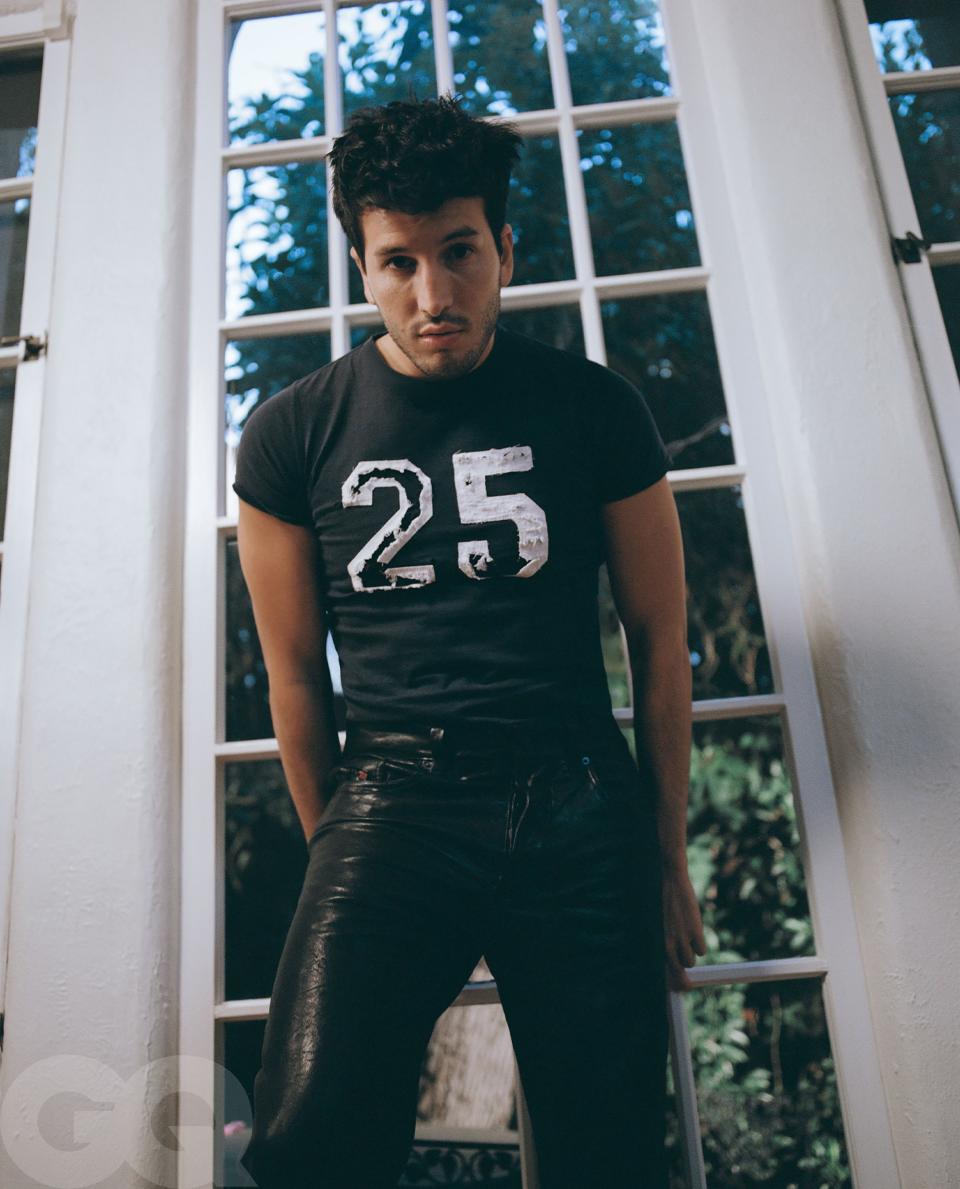
When COVID forced a hard stop, he went to live with his family in Medellín, took stock of his life, and started to clean house. “I was opening my eyes to situations I didn’t want to be a part of. You get used to people and things and when you don’t have them in your life you feel like you’re alone. Change really hurts a lot of times.” He parted ways with a longtime manager, and announced a breakup with TINI. “When a relationship like that gets so big, it’s obviously exciting — you’re living this romance movie and you’re the protagonist. But then it’s so big that you’re just part of that story. I was immature and I wasn’t in the right moment for it. I felt like I was losing my individuality.”
Fans speculated that Yatra had cheated with Danna Paola, the Mexican singer and Elite actor. “I've never really spoken about that because it was hard,” he explains now, saying the experience eventually led him to engage with mistruths more directly. “Danna and I have never even had an exchange of a message of hitting on each other at all. But to this day, I think there’s still people that think I was with her,” he says. “I became a villain in the movie, out of nowhere. I took a lot of shit. I care a lot about what people think. I also care about what’s fair, right or wrong, and I felt that I didn’t deserve that.”
He moved to Spain to film a musical comedy series, and made friends there. He toured with Ricky Martin and Enrique Iglesias in 2021, and solo throughout 2022. That year, at the recommendation of a therapist during a “tough moment,” he planned an intensive meditation retreat. Months later, this January, he arrived in northern India during a historic cold front, alone.
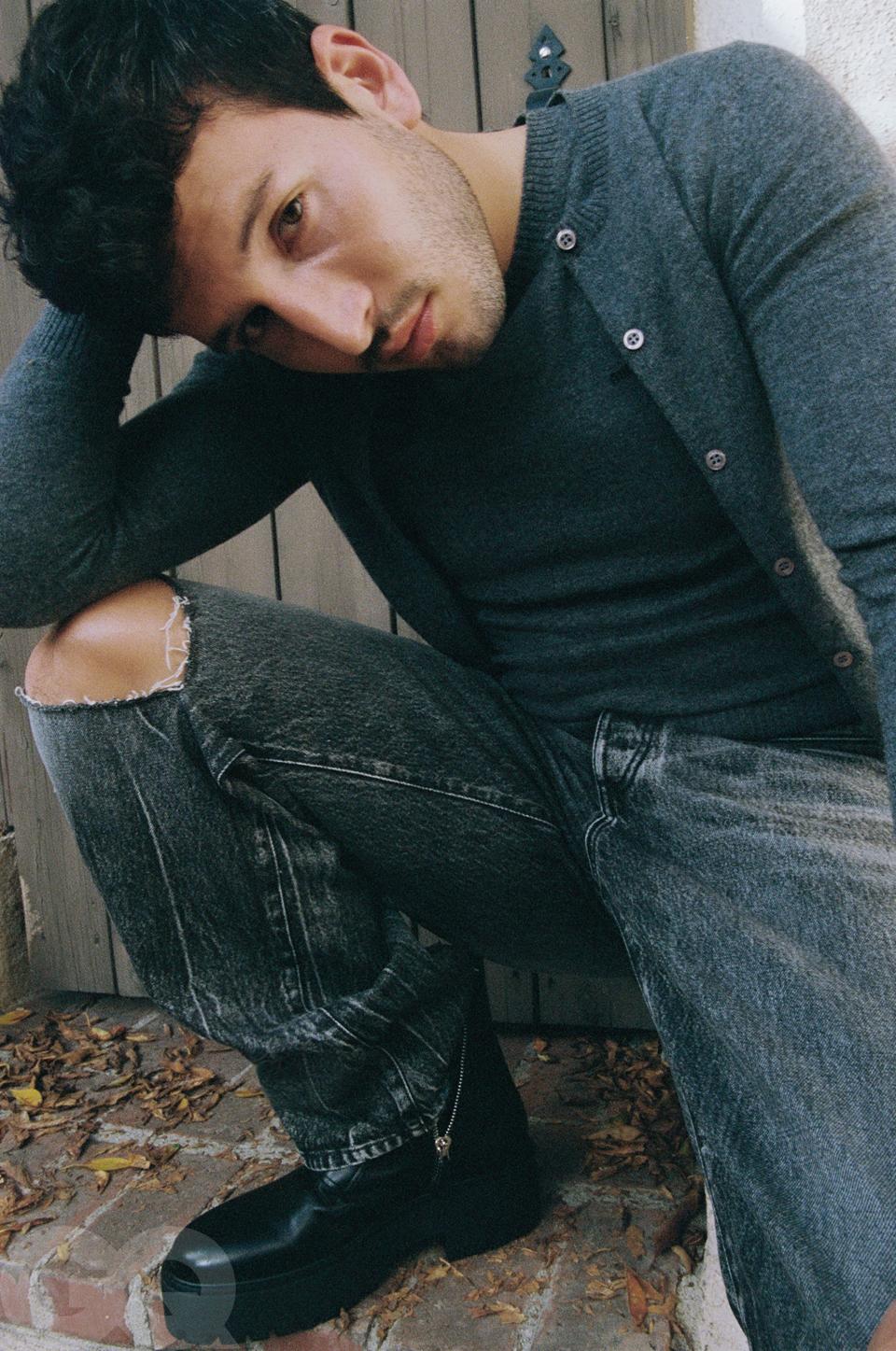
There were no books, no phone, no talking, no looking anyone in the eye. “I only had two sweaters,” he explains. “My hands were getting seriously burnt. It’s you against your head. You’re in this weird crazy trance. I don’t know what I was gonna find at the end, but I didn’t pull through.” He was supposed to stay 11 days but left after four, finding his way to a first class Emirates flight back to Europe. “I was showering on a plane while getting caviar. It was intense, going from extreme solitude to that over the top, insane amount of luxury.” He worried not finishing the retreat might make him “look like a loser.” And he felt pride in his courage to go home anyway.
Along his journey, Yatra has come to identify as someone who overthinks. He’s also developed a belief that overthinking can lead to suffering. Now, he’s trying to embrace moments when his “mind shuts off” so he can feel and experience more. His last album produced hit pop and urban singles and won Latin Grammys, but he looks back on the project as wayward. “I couldn’t really tell you what Dharma is,” he says. “Sometimes it’s hard for me to describe what music I make or who I am.” From here, he says, artistic growth looks like defining his purpose by asking: “What’s my core?”
It’s a worthy question, given the bountiful geographic, generational, and sonic hybridity of Latin music, and the remaking of global pop in its image. “Pop music is not even a genre. It’s a mixture of many experiences and cultures that makes something popular. Pop music is anything that’s for everyone,” says Manuel Turizo, a stylistically omnivorous Colombian singer who appears with Yatra on recent hit “VAGABUNDO,” which uses merengue as its foundation. “Some artists create a character and people connect with it, and that’s cool! But Sebastián is not creating a character. It’s him.”
Recently, following years of reggaeton domination, there’s surging popular interest in Regional Mexican music, with its acoustic instruments and organic feel. The subtle sea change indicates listeners who crave intimacy, and the sense that someone is writing and singing just for them, with passion. That feeling of closeness is what’s made “No Hay Nadie Más,” a stripped-down ballad about all-consuming love and heartbreak, one of Yatra’s most enduring signatures, with nearly 1 billion views on YouTube. It’s just a guitar and a voice. “As a songwriter, the more things you take away, the more naked you become,” Yatra says. Fans buy into his search for contentment and take it personally because they’re looking to belong too.
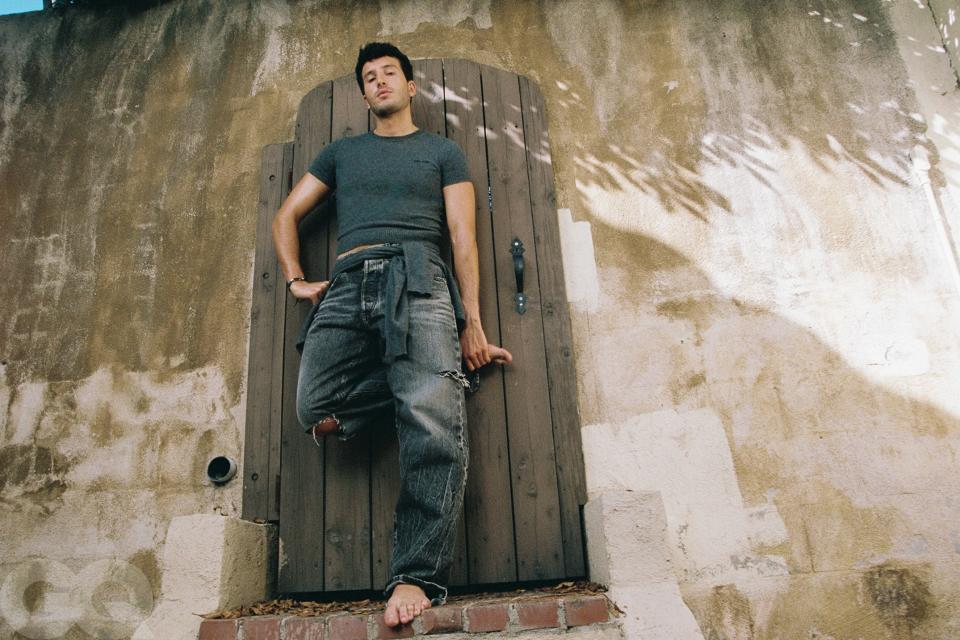
Yatra’s been uniquely successful at delivering sentimental songs that sound like how people actually speak now, with the right mix of melody, lyrics, and production dynamics to actually hold people’s attention. He says his next album will still incorporate a spectrum of sounds, but to get across a cohesive “code” of emotion. “En Español you say experiencia celestial — it’s like a celestial, heavenly experience,” Yatra says. “You have goosebumps. You feel like you’re flying.”
You do hear a cosmic lightness on “Energía Bacana,” a September single that builds from delicate, flamenco-referencing handclaps to a blissful climax that conveys the magic of loving someone whose entire vibe makes you happy and better. “It’s a very personal song, it’s already about somebody,” Yatra says. It’s possible he means Aitana, a Spanish singer who’s collaborated with Yatra and appeared alongside him on two seasons of La Voz Kids in Spain. In 2023 the two were photographed together at an industry wedding and on a friends trip to London. When they each shared photos from a trip to the Dominican Republic in April, they carefully tagged the same location, but never each other. Yatra describes this year as joyful, a time of “being happy in all things.” But if not secret, the details are private.
Instead of a real love interest or anonymous model, the “Energía Bacana” video, which Yatra co-directed, stars Georgina Rodríguez, whose relationship with Cristiano Ronaldo, the most-followed person on Earth, has been captured on reality TV. “She’s like the Latin Kim Kardashian,” Yatra says. “Georgina wanted to dance, she wanted burgers, she wanted to be with her friends and have a good time. We made it her video and their song. She’s singing about their love.”
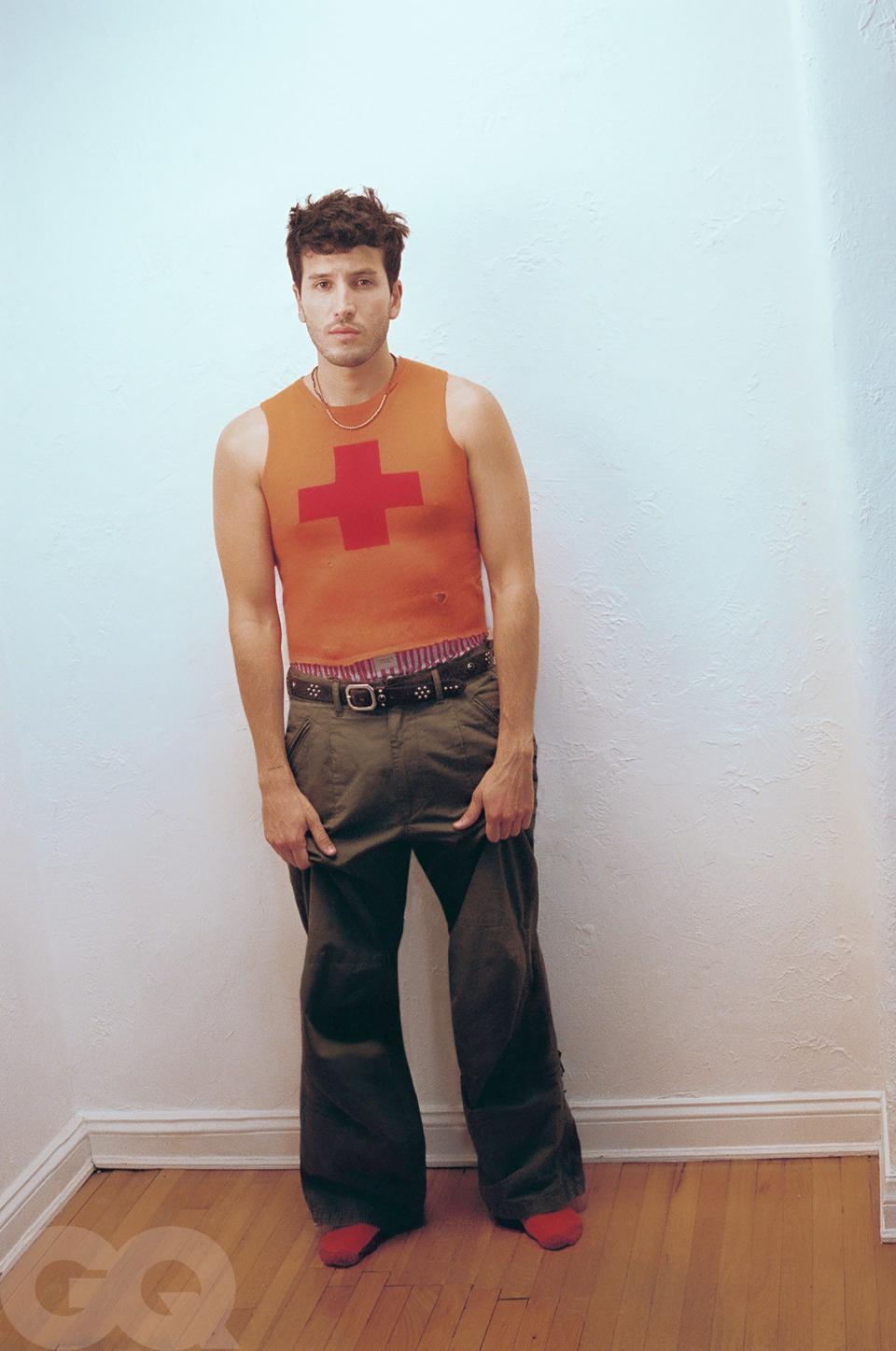
With 17 million plays on Spotify, the song is, only by the nearly impossible standards of today’s landscape and Yatra’s own catalog, not a huge hit. “It’s not like these crazy numbers, but I think the song is great. I’m not thinking about whether it’s No. 1 or not,” Yatra says. Like many very famous people before him, he could drive himself mad, trying to predict the right calculus of trends and collaboration to outstream his rivals or make his next cut funky as his last. But what’s the use of fighting when there’s chaos on earth, and something bigger at play too? “I’ve had a lot of hits that weren’t supposed to be hits,” he says, talking about his go-to singalong “Tacones Rojos,” and sounding like a surfer praying for the next perfect wave. “Songs can come to you like that: they already exist in the world and you get lucky and this moment of inspiration comes. God sends them to you.”
Manuel Turizo looks up to Yatra as secure in his ambition. “Success is when you get what you are looking for,” he says. “Some people are looking for money, some people are looking for happiness. Sebastián is doing OK. He’s not worried about how he’s gonna pay the rent tomorrow or next month. I’m sure of that. So success for him is doing what he loves. That’s why he’s not scared to be different or to be romantic.”
In November, Yatra co-hosted and performed at the Latin Grammys, held for the first time in Spain, and announced a partnership with the Latin Grammy Foundation to offer one student a 4-year scholarship to Berklee College of Music. A week before that, in Colombia, he celebrated the wedding of his brother Andrés, an author. “One of my secret dreams is that I would like for one of my brothers to have kids that are athletes, so I don’t have to go through it. Being the parent of an athlete is tough,” he laughs.
Otherwise, he doesn’t want for much. He’d love to be a coach on The Voice in the US one day, and growing his audience in the US market is “definitely a goal.” It’s easy to imagine him growing old like Usher, pulling at new musical threads and charming crowds in perpetuity. But he’s mindful to not become too attached to quests of world domination: “If the goal wasn’t being bigger in the US, it would be Japan, or India. To be happy, I don’t need to be super famous in the US. I don’t need to be super famous anywhere to be happy.”
He’s still most comfortable living like a star: moving around, writing songs, and conducting the whole show. His position is a magnificent means to meet new people, see new places, and carry a message of self-acceptance. “I really think my life’s incredible. Me asking for anything else at this point would just be selfish,” Yatra says. “So to be happy now is learning to value and give thanks for my life as it is, and also understanding why my head’s not always perfectly content.”
He says he’s practiced accepting that he’s imperfect, and owning and apologizing for mistakes. He wants to understand love, “in a deeper sense — not just the excitement of the beginning but what it’s actually like to give yourself to someone or to a situation, and share something very profound.”
In pursuit of his right place and everything that makes a song better, he remains steadfast. Under the kitchen island at the LA rental, there’s a black and pink tennis bag, ready to go whenever it’s game time. The bag was a gift from Rafael Nadal, who Yatra coincidentally met at an awards show in Spain, befriended, and later trained with in Mallorca. Earlier this year, Sebastián asked his friend Rafa how he handles losing. And Nadal said it doesn’t stress him out for long, because he loves competing more than he loves winning. When you take pleasure in giving everything, after all, the result will be what it needs to be.
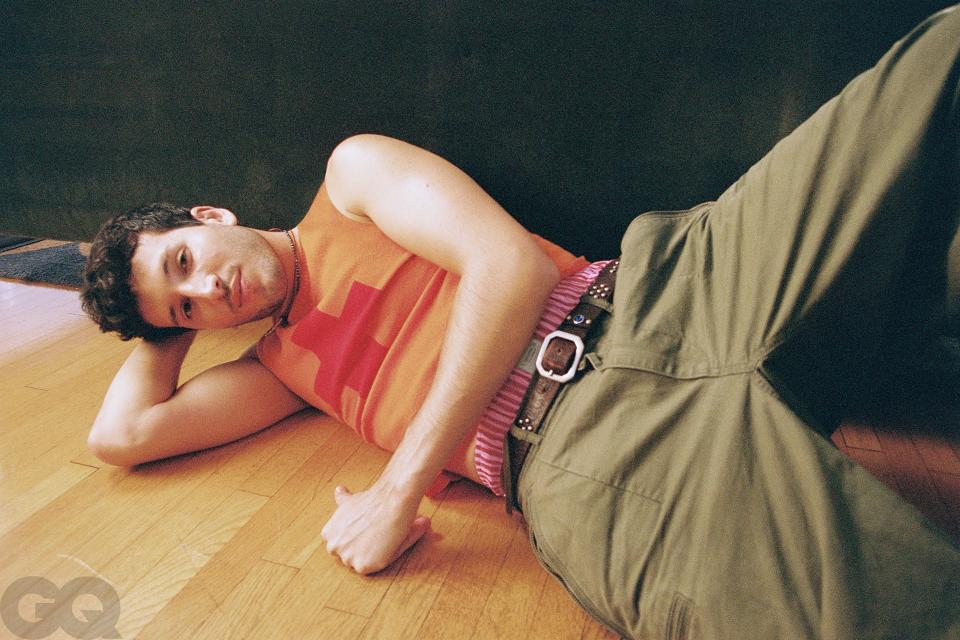
Naomi Zeichner is a writer and the host of New York Naomi on NTS Radio.
PRODUCTION CREDITS:
Photographs by Julian Burgueño
Styled by Brandon Tan
Grooming by Emily Dawn using Oribe Haircare and Chanel Beauty
Tailoring by Yelena Travkina
Originally Appeared on GQ

